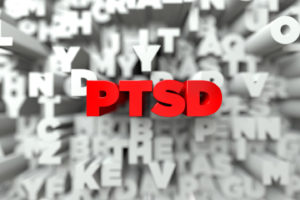 Posttraumatic stress disorder (PTSD) can be developed because of numerous reasons, including when you have witnessed or lived through a traumatic event. Counseling can be very helpful to overcome certain triggers of PTSD and get to the root of the problem. The truth is that the symptoms of PTSD only increase with time and do not decrease on their own.
Posttraumatic stress disorder (PTSD) can be developed because of numerous reasons, including when you have witnessed or lived through a traumatic event. Counseling can be very helpful to overcome certain triggers of PTSD and get to the root of the problem. The truth is that the symptoms of PTSD only increase with time and do not decrease on their own.
Though people experience PTSD differently, the symptoms fall into three main categories, and if you are experiencing these symptoms, you should contact Lifeworks to schedule a consultation:
- Are you re-experiencing symptoms or reliving the traumatic event in any of these forms?
- Intrusive, upsetting thoughts, memories
- Flashbacks – of an event particularly
- Nightmares – either of the event or anything negative
- Intense distress brought about by reminders of the event
- Strong physical reactions to reminders of the trauma
– nausea,
-rapid heartbeat,
-shortness of breath,
-muscle tension, or
-sweating
- Are you avoiding events or activities that trigger memories of the trauma?
- Specific places, activities, feelings or thoughts (large crowds, frightening movies
- Selective memory loss – forgetting certain aspects of the traumatic event
- Anhedonia – loss of enjoyment in activities and loss of interest
- Feelings of emotional numbness or disinterest
- Hopelessness
- Anxiety
- Difficulty falling asleep or staying asleep – insomnia
- Feelings of anger, resentment or hostility, or guilt
- Lack of attention or concentration decreased ability to work
- Feeling on edge
The treatment for PTSD is mainly through therapy. Lifeworks therapists can help you decide which of the available therapies are best for you. At the beginning of the counseling program, you and your therapists will set goals that you both agree upon and create a plan. Throughout the therapy process, you and your Lifeworks therapist will adjust your therapy plan according to your needs.
Of the available therapy options, cognitive behavioral therapy (CBT) is an effective form of counseling. There is also a similar kind of therapy known as Eye Movement Desensitization and Reprocessing (EMDR) used for PTSD. Depending on the goals that are most important to you in achieving, a therapy program will be chosen and begun.
Our goal at Lifeworks is to assure that you feel comfortable with your therapist and feel you are working as a team to address your concerns. We understand that it can be difficult to talk about painful situations in your life or about traumatic experiences that you’ve had. For many people, the feelings that surface during therapy can be scary and challenging.
When you have PTSD, you may be irritable and have difficulty getting along with other people. And this may reflect on your relationship with our therapist as well. Additionally, PTSD may affect your family life if you become uncommunicative. To avoid the escalation of symptoms to violence and aggression, seeking counseling is the route to go. For all your questions and concerns about PTSD therapy in Dallas or Carrolton, Texas, contact us today at Lifeworks.




